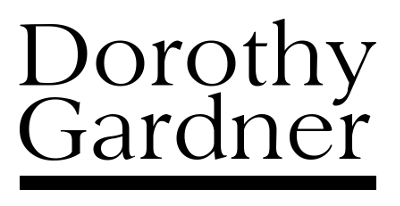
Curriculum
At Dorothy Gardner, our curriculum adheres to the Early Years Foundation Stage framework set out by the Department for Education. The framework supports an integrated approach to early learning and care. It offers all staff a set of common principles and commitments to deliver quality early education and childcare experiences to all children.
There are four guiding principles that shape our practice:
The EYFS Framework is built on seven key areas:
-
Communication and language development involves giving children opportunities to experience a rich language environment; to develop their confidence and skills in expressing themselves; and to speak and listen in a range of situations.
-
Physical development involves providing opportunities for young children to be active and interactive; and to develop their co-ordination, control, and movement. Children must also be helped to understand the importance of physical activity, and to make healthy choices in relation to food.
-
Personal, social and emotional development involves helping children to develop a positive sense of themselves, and others; to form positive relationships and develop respect for others; to develop social skills and learn how to manage their feelings; to understand appropriate behaviour in groups; and to have confidence in their own abilities.
-
Literacy development involves encouraging children to link sounds and letters and to begin to read and write. Children must be given access to a wide range of reading materials (books, poems, and other written materials) to ignite their interest.
-
Mathematics involves providing children with opportunities to develop and improve their skills in counting, understanding and using numbers, calculating simple addition and subtraction problems; and to describe shapes, spaces, and measures.
-
Understanding the world involves guiding children to make sense of their physical world and their community through opportunities to explore, observe and find out about people, places, technology and the environment.
-
Expressive arts and design involves enabling children to explore and play with a wide range of media and materials, as well as providing opportunities and encouragement for sharing their thoughts, ideas and feelings through a variety of activities in art, music, movement, dance, role-play, and design and technology.
If you wish to view the full framework feel free to download it from the link below. However, we would advise contacting us directly if you require more information as this document is aimed at practitioner.
Every child is a unique child, who is constantly learning and can be resilient, capable, confident and self-assured
Children learn to be strong and independent through positive relationships
Children learn and develop well in enabling environments, in which their experiences respond to their individual needs and there is a strong partnership between practitioners and parents and carers
Children develop and learn in different ways and at different rates. The framework covers the education and care of all children in early years provision, including children with special educational needs and disabilities

What to Expect, When?
4Children have produced a fantastic booklet which provides guidance for your child’s learning and development during the early years foundation stage. It's received the support of the DFE and is highly recommended reading.
The purpose of the booklet is to help you as a parent or carer find out more about how your child is learning and developing during their first five years, in relation to the EYFS. Children develop more rapidly during the first five years of their lives than at any other time. This booklet has been written to help you as a parent know what to expect during these vitally important years by focusing on the seven areas of learning and development which are covered in the EYFS.
Download a free copy of the booklet below.
